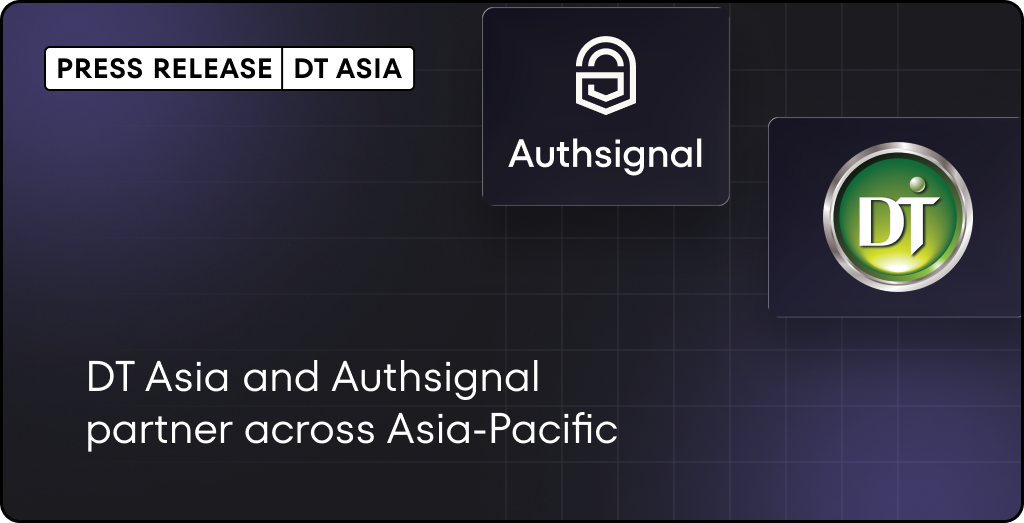In the realm of data security, passkeys play a pivotal role in ensuring confidentiality and authentication. With the ever-increasing risks of cyber threats, understanding how passkeys work is crucial. In this article, we will delve into the fundamentals of passkeys, shed light on their significance, and highlight how Authsignal emerges as the optimal solution to deploy passkey management in your software platform or organization.
What are Passkeys, and How Do They Function?
Passkeys are unique combinations of characters, such as passwords or cryptographic keys, used to authenticate and authorize users. They serve as a barrier between unauthorized individuals and sensitive information. Passkeys utilize encryption algorithms to transform data into a secure format, making it virtually impossible to decipher without the correct key.
Passkeys can be broadly categorized into two types: symmetric and asymmetric. Symmetric passkeys employ the same key for encryption and decryption, while asymmetric passkeys employ a public-private key pair for secure communication.
The Importance of Passkey Management
Effectively managing passkeys is vital to maintain robust security practices. They represent a great opportunity to improve your customer experience and remove passwords or SMS one-time Passwords. As we know, poorly managed passwords can lead to security breaches, unauthorized access, and compromised data. Here are a few reasons why passkey management is crucial:
- Data Confidentiality: Passkeys prevent unauthorized individuals from accessing sensitive information, safeguarding personal and business data from prying eyes.
- Authentication: By requiring passkeys for authentication, organizations can verify the identity of users, ensuring only authorized personnel gain access to protected resources.
- Compliance Requirements: Many industries have specific compliance regulations that mandate robust passkey management to protect customer data, such as the General Data Protection Regulation (GDPR) and Payment Card Industry Data Security Standard (PCI DSS).
- They're considered phishing-proof and represent a great opportunity to reduce the cost of SMS authentication. Additionally, there's a great uplift in your customer's login experience. Combined with Authsignal's no-code-rules engine, you can deliver world-class customer journeys.
Introducing Authsignal: Your Optimal Passkey Management Solution

Authsignal, a leading provider of secure authentication solutions, offers an unrivalled passkey management platform. Here's why Authsignal stands out:
- Advanced Encryption: Authsignal utilizes state-of-the-art encryption algorithms to secure passkeys, ensuring robust protection against unauthorized access and data breaches.
- Seamless Integration: Authsignal seamlessly integrates with existing systems and applications, making it easy to implement passkey management without disrupting your workflow.
- User-Friendly Interface: Authsignal boasts an intuitive user interface that simplifies passkey management for both administrators and end-users. Its straightforward setup and management options reduce complexity and enhance user adoption.
- Multi-Factor Authentication (MFA): Authsignal supports MFA, adding an extra layer of security by combining passkeys with other authentication factors like biometrics or one-time passwords.
- Scalability and Customization: Whether you have a small business or an enterprise-level organization, Authsignal offers scalable solutions that can be tailored to meet your specific requirements.
- Granular visibility across your customer journeys. Authsignal's single view of customer offers a unique and world-leading visibility of your users' journey and their actions.

Understanding how passkeys work and choosing the right passkey management solution is vital for safeguarding sensitive data from malicious actors. Authsignal's cutting-edge technology, seamless integration, user-friendly interface, and scalability make it the optimal choice for passkey management. By implementing Authsignal, you can fortify your data security measures and ensure your organization remains protected in today's ever-evolving threat landscape.
Remember, passkeys are not just keys, but the guardians of your digital fortress, and Authsignal empowers you to wield them effectively.





.svg)


.png)





